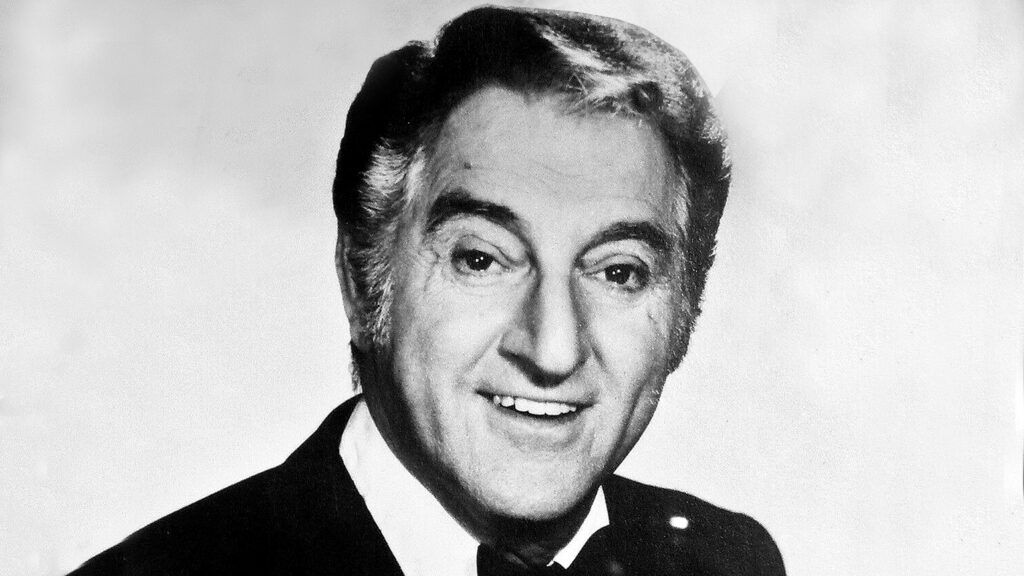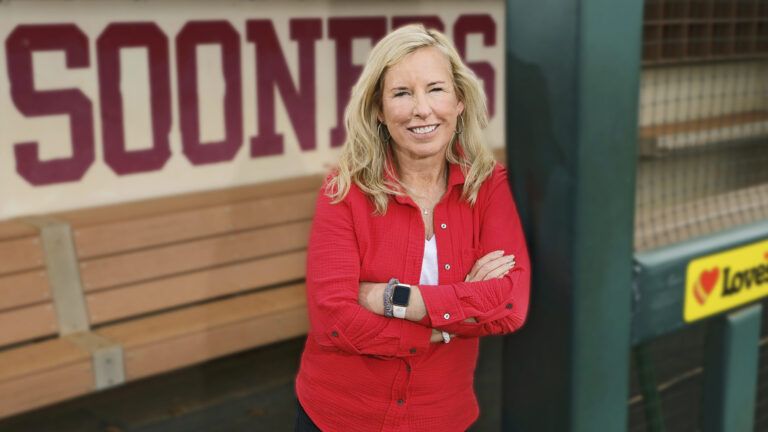Many people seem to know that I once vowed to Saint Jude that I’d build a shrine in his name if he’d help me through a difficult time in my life. Yet the fascinating part of that story is how, when I failed to keep my part of the bargain, that saint resolutely refused to let me off the hook.
If you’re not a Catholic, as I am, such talk of shrines and vows and saints might sound a bit strange, but when I was growing up in a deeply religious family in Toledo, Ohio, these things were familiar matters.
My parents had come from Lebanon, a country where shrines dedicated to favorite patron saints are familiar sights. Often these shrines are simply statues, or little places where you can stop to meditate and pray.
We Catholics, of course, do not worship these patron saints—we worship only God—but we do look upon them as special intercessors with God, and we choose them as our guardians and protectors.
And, believe me, as one of nine kids in a very poor immigrant family, I was grateful for all the protection I could get!
My mother did not hesitate to make her own spiritual vows. I remember especially a solemn promise she made shortly after the birth of my youngest brother. His name was Danny.
At that time my name was Amos—Amos Jacobs—but early in my show business career I took the names of my youngest and oldest brothers and became Danny Thomas.
When the first Danny was a few months old, he was badly bitten by a rat that jumped into his crib. He screamed and went into convulsions.
At the hospital the doctors told my mother that Danny was dying, but she wouldn’t accept that. She went to her knees in prayer, promising God that if her baby’s life were saved she’d beg alms for the poor for a year.
Danny got well, and every day for 12 months my mother, herself one of the poorest of the poor, living in shabby, cramped quarters over a pool hall, went out and begged pennies from door to door.
My mother’s faith in God was so strong that she could not possibly give in to fear or hopelessness. To her, despair was a tool of the devil—it was doubting God, and that was a sin.
As each of us children was born, she turned us over to God and after that she would not let herself, or us, forget that we had Him to turn to.
When I was ten years old, I landed a job hawking soda pop in the old Columbia burlesque theater in Toledo, which meant that I wouldn’t get home until 2:30 in the morning.
One day I heard a neighbor asking my mother if she wasn’t worried about the things that might happen to her little boy, but my mother’s reply rang with certainty. “Amos is sale,” she said. “I’ve given him into the care of the Blessed Mother.” She knew that I was in good hands, and so did L
I always had my heart set on being an entertainer, and during the seven years I spent at the burlesque theater I studied some of the best comedians in the business and grew all the more determined to be one too.
I quit school at 16 and worked as a busboy, a night watchman, a drill-press operator’s assistant, all the while picking up odd jobs singing and clowning at local banquets.
Eventually I went to Detroit and sang for a while on a radio program. That’s where I met and married Rosemarie, who’s been my wife ever since. And that’s where I faced the first real crisis of my life.
In June 1940, a baby was on the way. I was making two dollars a night as an M.C. at a Detroit supper club called the Club Morocco. Then it was announced that on Saturday night the club would close for good. I had no job to go to, and no prospects.
Rosemarie was urging me to consider looking for a more reliable line of work, but all I myself wanted was show business. I wasn’t worried about our future,
I wasn’t in despair—my mother had taught me too well for that—but the time had come when I had to choose a realistic career, for me and for my family.
Rosemarie talked about my going into the grocery business. I had to consider her wishes. Maybe she was right, maybe I could never make my way—and ours—as an entertainer. I was in an agony of indecision.
On Tuesday night a man came into the Club Morocco. He was celebrating something. His pockets were filled with little cards that he was handing out to people as he tried to tell them about an incredible thing that had just happened to him.
His wife was in a hospital where she’d been facing an operation for a deadly cancer. All night long this man had knelt on the cold marble floor of the hospital and prayed the same prayer over and over again.
When the sun came up in the morning the doctors called him in to report that, inexplicably, miraculously, his wife’s cancer had disappeared.
“This is the prayer that did it,” he said, handing me one of the cards. It was the prayer to Saint Jude.
All that night I thought about this man and his appeal to a saint whom I knew only slightly as “Patron of the Hopeless” or “The Forgotten Saint.”
Though an apostle of Jesus, Jude was not one of the saints whom many Catholics turned to, probably because of his name, which was really Judas Thaddeus, far too similar to that of the hated Judas Iscariot.
The next day I went into a church to pray, and when I reached into my pocket for a coin, I found the card the man had given me. Then and there I felt moved to make my vow.
I did not ask for anything specific like money or fame, but I promised Saint Jude that if he would help me find some clear course for my life, I would build him a shrine.
The day after the Club Morocco closed, I drove my old Buick down to Toledo and left Rosemarie with my parents while I took one last stab at looking for work in show business.
My plan was to go to Cleveland where I had a number of contacts, but at the last moment, I turned the other way and went to Chicago. It was almost as though I was being drawn there.
Chicago became my town. Very quickly one little radio job led to another, and in a short time I was flourishing as a character actor. Then I tried my hand again as a stand-up entertainer.
I opened before 18 customers in a converted automobile showroom called the 5100 Club; in a few months there were that many people waiting outside trying to get in. Success simply piled upon success.
And what happened to my vow to Saint Jude? Nothing. I was so busy that for two years I had forgotten about it. But Saint Jude had not.
On the way home after a night at the 5100 Club, I used to go to the 5:00 a.m. mass at St. Clement’s Church. One morning I picked up a little pamphlet that lay beside me in the pew and, to my surprise, read about a novena—a nine-day period of devotion—about to be offered to none other than my old friend Saint Jude.
Even more surprising was the information that there, on the south side of Chicago, was the first national shrine to Saint Jude. Chicago was Saint Jude’s town, too! He wanted me to know it.
I did not forget Saint Jude again. I knew I had to do something about fulfilling my vow, but I couldn’t make up my mind what kind of a shrine I should build.
Rosemarie suggested that I think about a statue, or perhaps a side altar, but somehow nothing seemed right to me. Time went by. I moved on to New York. My career progressed to movies and TV. Still I could not make up my mind.
And then came the dream.
I dreamed one night about a little boy being injured in a car accident. He was rushed to the hospital, but for some reason the doctors were reluctant to treat him and the boy bled to death. The dream was so vivid, so horrifying, that it troubled me for days.
But out of that dream came an idea, an idea born of a lifetime of experiences. I thought about the man who had prayed for his wife all night on the cold hospital floor.
I thought of my infant brother Danny grabbing hold of life just when the doctors said he was dying, and slowly I began to see Saint Jude’s shrine as a hospital.
And what better way to honor the Patron Saint of the Hopeless than with a place where “dying” children, children with “incurable” diseases could come to be healed?
That, of course, was the beginning of Saint Jude’s Children’s Research Hospital in Memphis. Tennessee. It is the only institution on this earth dedicated solely to the conquest of catastrophic diseases.
It is open to children of all faiths and races regardless of their parents’ ability to pay. No family ever pays for the services rendered there. They are free.
It took me ten years to raise the money to get the hospital started. I did it mainly through benefit performances, going all over the country raising money from Catholics and Protestants and Jews—and Moslems, too—and especially getting help from people of my own Lebanese heritage.
I never went before one of those benefit audiences that I didn’t think about my mother going door to door begging pennies, for, in my own way, I was doing the same thing, for the same reason.
Today when I look at the hospital that Saint Jude brought into being, when I see the hope that the Saint of the Hopeless has brought to thousands of parents and their youngsters, I am as certain as my mother was certain, that to right despair is to affirm our faith in God and in the love He has for all of us.
For more inspiring stories, subscribe to Guideposts magazine.





